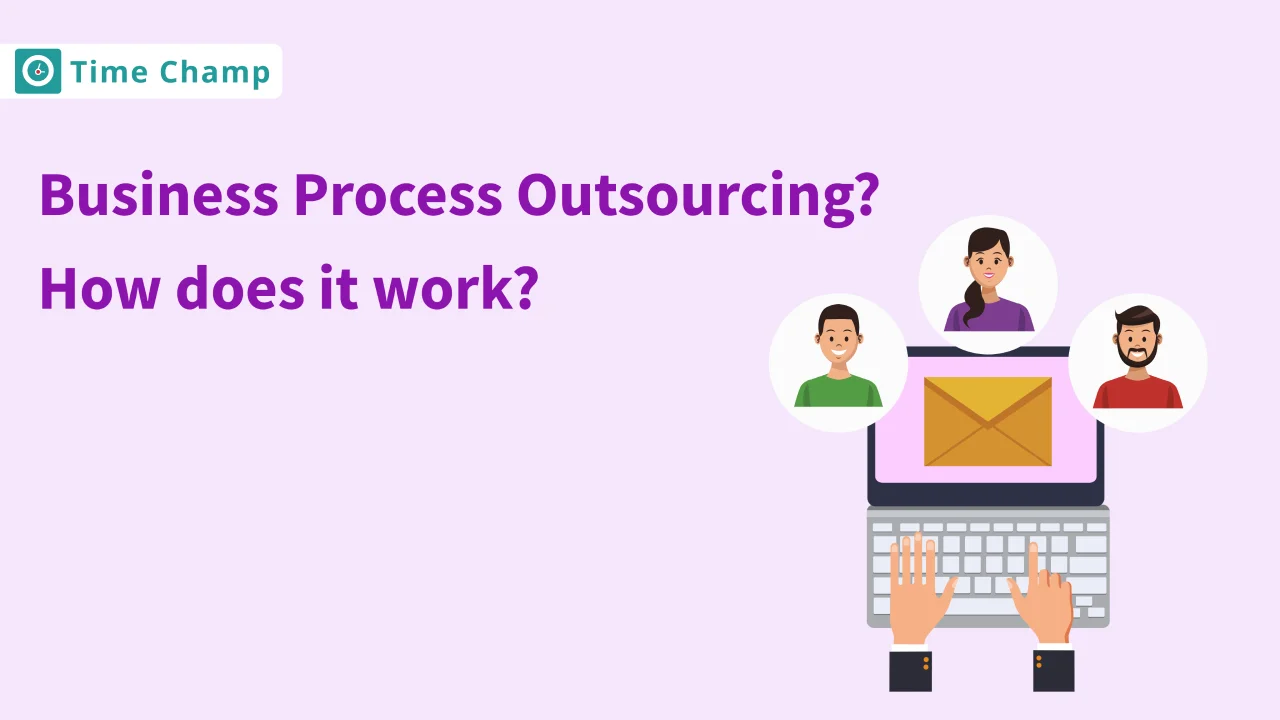Definition
of Business Process
Outsourcing
(BPO):
BPO stands for Business Process Outsourcing and it entails the hiring of external companies to perform certain jobs. These organizations are professionals in handling those activities effectively. BPO was initially employed by large manufacturing companies for their supply chains, but now it is the in-thing in all sectors. It is akin to hiring someone to take care of certain tasks for your firm so you can concentrate on what you do best.
How does business process outsourcing work?
Business Process Outsourcing (BPO) works by a company contracting out one or more of its internal operations or functions to a third-party service provider. The process typically involves the following steps:
- Identifying Processes for Outsourcing: The company looks at its operations to see which tasks it could get help with. This could include things like customer service, IT support, HR, accounting, and data entry.
- Selecting a BPO Provider: Once they know which tasks they want to outsource, they look for a company that can do those tasks well. They consider things like the company’s experience, reputation, cost, and technology.
- Negotiating the Contract: After picking a provider, they talk about the details of the job. This includes what work will be done, how well it needs to be done, how much it will cost, and any legal stuff.
- Transitioning Processes: They start moving the tasks over to the provider. This might involve teaching them how things are done and making sure everything works together smoothly.
- Managing the Relationship: They keep talking with the provider to make sure things are going well. They check on how the work is being done, give continuous feedback, and make changes if needed.
- Monitoring and Evaluation: They keep an eye on how the provider is doing using set goals and agreements. This helps make sure the work is being done right and efficiently.
By outsourcing non-core business functions, companies can focus on their primary competencies, drive growth, and potentially gain significant cost advantages, all while leveraging the specialized skills of the BPO provider. Proper execution and ongoing management of BPO relationships are crucial to maximizing the benefits of outsourcing arrangements.
The Role of BPO Companies
The BPO companies are masters of managing outsourced duties in an effective manner. They usually provide:
- Specialized Skills and Technologies: They have and may use the latest technologies, and knowledgeable people with the right skills specific to what they want.
- Scalability: The BOP companies can flex the number of work it does in accordance with the client. They would do more when the business gets hot and less if things start to cool off.
- Cost Reduction: Doing a vast amount of jobs for various customers helps BPO companies to disperse their costs and offer lower prices than doing these tasks on their own account.
- Global Reach: Not only are they virtually present all over the world, but have a range of locations in different time zones where one can get their services.
The Benefits and Challenges of BPO
BPO offers multiple benefits including cost savings, increased efficiency, risk mitigation, and allowing a company to focus on its core strengths. However, it also comes with challenges such as potential loss of control over the outsourced process, cultural differences, and dependency on the BPO provider.
Careful implementation of BPO strategies, including rigorous provider selection and robust performance monitoring, can help mitigate these challenges.
Selecting the Right BPO Partner
Choosing the correct BPO partner is critical for successful outsourcing. Considerations should include:
- Reputation and Experience: Gauge the provider’s track record and industry standing.
- Cultural Compatibility: Assess whether the company’s work culture aligns with your own.
- Technological Capabilities: Ensure they have the right technology stack to meet your requirements.
- Security Standards: Verify that they have robust security protocols to protect your data.
- Scalability: Confirm that the provider can scale services to accommodate your business growth.
A thorough vetting process can lead to a fruitful long-term partnership with a BPO provider.
Best Practices for BPO Implementation
Effective implementation of BPO requires best practices such as:
- Communication and Governance: Establish clear communication channels and governance structures for resolving issues and making decisions.
- Knowledge Transfer: Ensure an effective transfer of knowledge from your company to the BPO provider.
- Continuous Improvement: Work with the provider on ongoing process optimization and service quality enhancements.
- Contract Clarity: Create a well-defined contract that outlines all expectations, service levels, and terms of engagement.
By following these best practices, businesses can maximize the benefits of their BPO relationships.
Want to enhance accountability in your outsourced workforce?
Book a Time Champ demo and take the first step towards empowered management!
data-preserver-spaces="true">Calculating the ROI of BPO Services
When judging the success of BPO services, calculating the Return on Investment (ROI) involves evaluating:
- Cost Savings: Compare operational costs before and after outsourcing.
- Quality Improvements: Analyze the impact on product or service quality and customer satisfaction.
- Time to Market: Measure how BPO services have affected your speed to market.
- Innovation Impact: Determine how outsourcing has contributed to the company’s ability to innovate.
A positive ROI from BPO services should reflect not just in cost savings but also in enhanced strategic capabilities.
FAQs
Business Process Outsourcing, commonly known as BPO, is a strategic practice where organizations collaborate with third-party vendors to handle specific business functions or processes. The chosen vendor takes responsibility for managing and administering the selected business process.
BPO originated with large manufacturing organizations looking to optimize supply chain management. Over time, it has evolved into a widespread strategy adopted by companies across various industries to enhance operational efficiency.







